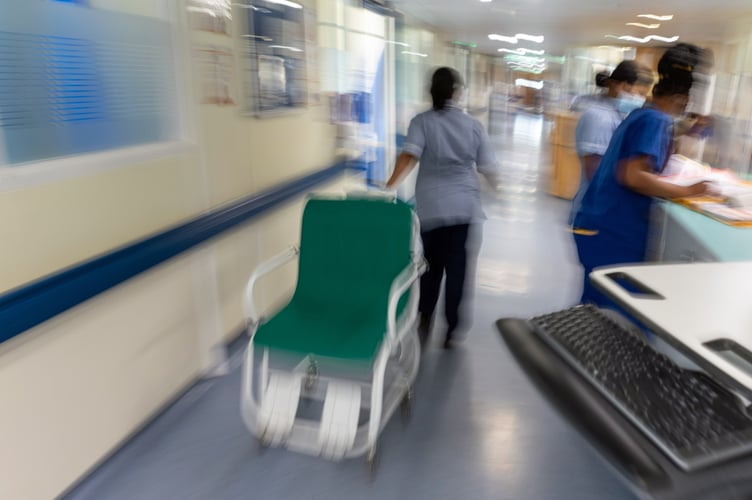Nearly nine in 10 eligible men invited for a screening for an abdominal aortic aneurysm in Cornwall and the Isles of Scilly received the potentially life-saving test this year – making it the place with the second best performance in England, new figures show.
The British Heart Foundation said the NHS screening programme has been proven to save lives but warned more must be done to improve its take-up in the most deprived parts of the country.
AAAs are a swelling in the aorta, the artery that carries blood from the heart to the abdomen. Most aneurysms do not cause any problems, but they can prove fatal when they burst.
Men who smoke, have high blood pressure or high cholesterol have a higher chance of getting one.
In England since 2013, screening for AAA is offered to all men in the year they turn 65, which consists of a painless, non-invasive ultrasound scan.
New figures from NHS England show the NHS Cornwall and the Isles of Scilly Integrated Care Board successfully invited nearly all of the 4,025 eligible men in its patch to a screening in the year to March.
Of these, 3,573 were successfully screened, giving a screening rate of 88.8%.
Professor Matthew Bown, British Heart Foundation professor of vascular surgery at the University of Leicester, said screening for AAA has led to a fall in the number of deaths, compared to countries with no screening.
He added: "Performance is best measured by looking at how many men take up the offer of screening – and attendance rates for AAA screening are very good, particularly when compared to other screening programmes for adults and things like NHS Health Checks."
Across England, the screening rate ranged from 89.1% in the NHS Devon area, to 72% in the north west London area.
Prof Bown said while the regional disparities were showing signs of improvement, there were still issues within communities.
"AAAs are actually most common in those people from the most deprived areas of the country and these men are the least likely to attend for screening," he said.
"Little is known about why men do and don’t choose to attend for screening.
"Before we try to intervene with things like text message reminders or public health campaigns, we need to speak to those men who have chosen not to attend to find out why they didn’t.
"Until we understand the reasons why men don’t attend, we can’t plan what to do about it."
The data also shows the screening detected 21 aneurisms in Cornwall and the Isles of Scilly.
Nationally, 1,907 aneurysms were found, with 14,696 men placed on surveillance at the end of the year, and 818 referred for surgery.
Dr Amanda Doyle, national director for primary care, community, vaccinations and screening at NHS England, said: "The NHS Abdominal Aortic Aneurysm screening programme has been very successful with the latest annual data showing that eight out of ten eligible men have been screened for the condition, and almost 2,000 aneurysms found.
"The condition can be life-threatening and screening enables us to spot, monitor and treat an aneurysm early to prevent complications, so the more people we screen, the more lives are potentially saved, and I would urge everyone who is invited in the year they turn 65 to come forward - it could save your life."



.png?width=209&height=140&crop=209:145,smart&quality=75)
